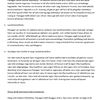December 4, 2009.
Meeting with representatives of the IMF, Mr. Franek and Mr. Flanagan and a group of Icelanders who have been corresponding with IMF and Strauss-Kahn.
Attending on behalf of the Icelandic group were: Gunnar Sigurdsson, B. Heiša Heišarsdóttir, Įsta Hafberg, Einar Mįr Gušmundsson, Helga Žóršardóttir, Gunnar Skśli Įrmannsson, Lilja Mósesdóttir, Elķas Pétursson, Ólafur Arnarson.
The meeting which lasted almost two hours was informative to an extent and we thank the representatives of the IMF for their time.
The following fundamental issues were addressed. We systematically went through the items listed below at the meeting. We submitted data to support our case and we tried with all means necessary to get clear answers based on facts.
1. In Iceland Balance of trade will be positive by approximately iskr. 160 billion per year over the next ten years. Mr.Flanagan failed to demonstrate how this could be achieved.
2. The state's revenue should increase by kr. 50 billion per year over the next few years. Mr Flanagan failed to present credible arguments for this scenario.
3. That the GDP will increase over the next years. Mr. Flanagan failed to demonstrate that this was possible.
4. How high Iceland“s debt margin of GDP can be? Mr. Flanagan side-stepped the issue and gave no clear answer.
The fundamental assumptions listed above are the core of the IMF“s program for Iceland. Our assessment is that there are no prerequisites in place so the basic items will be a reality. As a result, the IMF“s program is not working. Mr. Flanagan failed to change our convictions. Unfortunately, we do not see any sense in the IMF program.
Mr. Flanagan failed to deflect our criticism convincingly, he didn’t answer unpleasant questions.
1. Trade balance.
We suggested that in the historical context there was no precedent for a positive trade balance in this volume for such a long time. The only logical possibility is to reduce imports significantly.
Mr. Flanagan didn’t consider it useful to compare the past with the future. Mr. Flanagan believes the past is not really significant because of the great changes that have occurred during the economical collapse and its impact on the income structure of the country. We indicated to him that before the bank bubble the economy had been similar to what he was describing but he seemed to believe that was not the case. He believed that the crisis would lead to a lasting surplus in trade balance, which does not have any historic precedent. He could not point to any plans that could create this surplus. He didn’t mention a reduction of imports. He believed that the quota system prevents increased export of fish in quantity (tons). He had some ambiguous words regarding the energy-intensive industries.
The conclusion after listening to him was that he believes this will happen, but cannot explain how.
Later in the meeting Mr. Flanagan accidentally revealed, how the trade surplus figures were obtained. The liabilities of Iceland were added together and then the Balance of trade was set so that Iceland could stand to deliver. This is a well known function in the “Excel”-program called "goal-seeking"
2. Tax revenue increase.
Mr. Flanagan named increased tax revenues. We indicated to him that 2008 had been one of the best tax years in Icelandic history. Conditions to obtain huge sums in tax revenue in 2008 were extremely favorable. In our opinion these conditions do not exist today. The banks collapsed, wages have declined, economic activity is low, etc. How can we expect to get tax revenues in 2010 on par with 2008? Moreover, how will it be possible to increase tax revenues by 50 billion annually for years to come? Mr. Flanagan had no answer to these questions. He could make it clear to us how this conclusion was reached.
3. GDP.
Mr. Flanagan was asked about the IMF’s estimate for the growth in GDP. He considered it to be put forth carefully. He was asked how these estimates were made. The answers seemed to indicate the usage of an "Excel"-methodology similar to the one applied in other programs for Iceland. Mr. Flanagan also said that it is clear that Iceland would have to change from a developed service community to a production society with an emphasis on exports. This would be seen in the near future in a declining share of commerce and services for domestic use in the turnover of the community.
4. Debt margin as a percentage of GDP.
This was discussed and he considered it quite possible for Iceland to take on a higher debt margin given certain assumptions. The main assumption was that existing assets would be available. It appeared to make no difference in his assumption, however, that the assets would not necessarily be owned by the debtors. We pointed out him that such assets were not available as payment, such as pension funds, which are the property of the people, not the state. This suggestion seemed irritating to Mr. Flanagan. Whether that was because this was new information to him or that he knew that the assets of the pension funds are not at the disposal of the state to cover debt, was not clear. He believed the foreign assets of the pension funds would provide foreign currency, and seemed to believe that the currency would be allocated to the state. How he comes to this conclusion is unclear.
Other issues addressed at the meeting:
Very high risk of exodus. Mr. Flanagan expressed concern about that, but believes not can be done about it.
Mr. Flanagan said it was a goal of the government not to cut down its welfare system based on the Nordic model. It was observed by us that it was not a policy of IMF.
He believed that the Icelandic króna would not recover within ten years. As a result, loans Icelanders took in foreign currency will not change to any extent over the next 10 years. Accordingly, the cut in living standards due to the fall of the króna has come to stay. That could lead to Iceland being low wage country, compared to the neighboring countries. A country that produces raw materials and goods, for other countries to fully produce. A bit like the third-world countries...
It is on the agenda of the Board of the IMF to visit Iceland.
Mr. Flanagan said that the outcome of the Icesave dispute was not a prerequisite for the assistance of IMF.
The United Kingdom, the Netherlands and the Nordic countries had required too high an interest rate in too short a time. Mr. Flanagan argued that the IMF had addressed the issue and gotten those parties to moderate their claims.
Mr. Flanagan claimed that Sweden represented the Nordic countries when Iceland’s case was addressed at the IMF and that the Swedes had set the solution of the Icesave-dispute as a condition for the Nordic loans and assistance.
Mr. Flanagan claimed that it was up to the government of Iceland to decide the extent and time frame of spending cuts and tax increases. It was made clear at the meeting that if the emergency law would fail the Icelandic state would officially be bankrupt.
When Mr. Flanagan was asked where the plans of the IMF had gone well he just named Turkey.
Meeting with representatives of the IMF, Mr. Franek and Mr. Flanagan and a group of Icelanders who have been corresponding with IMF and Strauss-Kahn.
Attending on behalf of the Icelandic group were: Gunnar Sigurdsson, B. Heiša Heišarsdóttir, Įsta Hafberg, Einar Mįr Gušmundsson, Helga Žóršardóttir, Gunnar Skśli Įrmannsson, Lilja Mósesdóttir, Elķas Pétursson, Ólafur Arnarson.
The meeting which lasted almost two hours was informative to an extent and we thank the representatives of the IMF for their time.
The following fundamental issues were addressed. We systematically went through the items listed below at the meeting. We submitted data to support our case and we tried with all means necessary to get clear answers based on facts.
1. In Iceland Balance of trade will be positive by approximately iskr. 160 billion per year over the next ten years. Mr.Flanagan failed to demonstrate how this could be achieved.
2. The state's revenue should increase by kr. 50 billion per year over the next few years. Mr Flanagan failed to present credible arguments for this scenario.
3. That the GDP will increase over the next years. Mr. Flanagan failed to demonstrate that this was possible.
4. How high Iceland“s debt margin of GDP can be? Mr. Flanagan side-stepped the issue and gave no clear answer.
The fundamental assumptions listed above are the core of the IMF“s program for Iceland. Our assessment is that there are no prerequisites in place so the basic items will be a reality. As a result, the IMF“s program is not working. Mr. Flanagan failed to change our convictions. Unfortunately, we do not see any sense in the IMF program.
Mr. Flanagan failed to deflect our criticism convincingly, he didn’t answer unpleasant questions.
1. Trade balance.
We suggested that in the historical context there was no precedent for a positive trade balance in this volume for such a long time. The only logical possibility is to reduce imports significantly.
Mr. Flanagan didn’t consider it useful to compare the past with the future. Mr. Flanagan believes the past is not really significant because of the great changes that have occurred during the economical collapse and its impact on the income structure of the country. We indicated to him that before the bank bubble the economy had been similar to what he was describing but he seemed to believe that was not the case. He believed that the crisis would lead to a lasting surplus in trade balance, which does not have any historic precedent. He could not point to any plans that could create this surplus. He didn’t mention a reduction of imports. He believed that the quota system prevents increased export of fish in quantity (tons). He had some ambiguous words regarding the energy-intensive industries.
The conclusion after listening to him was that he believes this will happen, but cannot explain how.
Later in the meeting Mr. Flanagan accidentally revealed, how the trade surplus figures were obtained. The liabilities of Iceland were added together and then the Balance of trade was set so that Iceland could stand to deliver. This is a well known function in the “Excel”-program called "goal-seeking"
2. Tax revenue increase.
Mr. Flanagan named increased tax revenues. We indicated to him that 2008 had been one of the best tax years in Icelandic history. Conditions to obtain huge sums in tax revenue in 2008 were extremely favorable. In our opinion these conditions do not exist today. The banks collapsed, wages have declined, economic activity is low, etc. How can we expect to get tax revenues in 2010 on par with 2008? Moreover, how will it be possible to increase tax revenues by 50 billion annually for years to come? Mr. Flanagan had no answer to these questions. He could make it clear to us how this conclusion was reached.
3. GDP.
Mr. Flanagan was asked about the IMF’s estimate for the growth in GDP. He considered it to be put forth carefully. He was asked how these estimates were made. The answers seemed to indicate the usage of an "Excel"-methodology similar to the one applied in other programs for Iceland. Mr. Flanagan also said that it is clear that Iceland would have to change from a developed service community to a production society with an emphasis on exports. This would be seen in the near future in a declining share of commerce and services for domestic use in the turnover of the community.
4. Debt margin as a percentage of GDP.
This was discussed and he considered it quite possible for Iceland to take on a higher debt margin given certain assumptions. The main assumption was that existing assets would be available. It appeared to make no difference in his assumption, however, that the assets would not necessarily be owned by the debtors. We pointed out him that such assets were not available as payment, such as pension funds, which are the property of the people, not the state. This suggestion seemed irritating to Mr. Flanagan. Whether that was because this was new information to him or that he knew that the assets of the pension funds are not at the disposal of the state to cover debt, was not clear. He believed the foreign assets of the pension funds would provide foreign currency, and seemed to believe that the currency would be allocated to the state. How he comes to this conclusion is unclear.
Other issues addressed at the meeting:
Very high risk of exodus. Mr. Flanagan expressed concern about that, but believes not can be done about it.
Mr. Flanagan said it was a goal of the government not to cut down its welfare system based on the Nordic model. It was observed by us that it was not a policy of IMF.
He believed that the Icelandic króna would not recover within ten years. As a result, loans Icelanders took in foreign currency will not change to any extent over the next 10 years. Accordingly, the cut in living standards due to the fall of the króna has come to stay. That could lead to Iceland being low wage country, compared to the neighboring countries. A country that produces raw materials and goods, for other countries to fully produce. A bit like the third-world countries...
It is on the agenda of the Board of the IMF to visit Iceland.
Mr. Flanagan said that the outcome of the Icesave dispute was not a prerequisite for the assistance of IMF.
The United Kingdom, the Netherlands and the Nordic countries had required too high an interest rate in too short a time. Mr. Flanagan argued that the IMF had addressed the issue and gotten those parties to moderate their claims.
Mr. Flanagan claimed that Sweden represented the Nordic countries when Iceland’s case was addressed at the IMF and that the Swedes had set the solution of the Icesave-dispute as a condition for the Nordic loans and assistance.
Mr. Flanagan claimed that it was up to the government of Iceland to decide the extent and time frame of spending cuts and tax increases. It was made clear at the meeting that if the emergency law would fail the Icelandic state would officially be bankrupt.
When Mr. Flanagan was asked where the plans of the IMF had gone well he just named Turkey.
Mr. Flanagan was asked if he would choose to stay in Iceland under the current circumstances if he were an Icelander. He replied that if he were an Icelander today, and could get work abroad, he would not stay.


 andres08
andres08
 asthildurcesil
asthildurcesil
 axelaxelsson
axelaxelsson
 baldvinj
baldvinj
 birgitta
birgitta
 bjarnihardar
bjarnihardar
 bofs
bofs
 einarbb
einarbb
 eirikurgudmundsson
eirikurgudmundsson
 eldlinan
eldlinan
 estheranna
estheranna
 fiski
fiski
 framtid
framtid
 fullvalda
fullvalda
 fun
fun
 gattin
gattin
 georg
georg
 gerdurpalma112
gerdurpalma112
 grasteinn
grasteinn
 gretarmar
gretarmar
 gullvagninn
gullvagninn
 haddi9001
haddi9001
 haddih
haddih
 hallgrimurg
hallgrimurg
 heg
heg
 heimssyn
heimssyn
 helgatho
helgatho
 hordurhalldorsson
hordurhalldorsson
 hringurinn
hringurinn
 icekeiko
icekeiko
 jensgud
jensgud
 johannesthor
johannesthor
 jorunnfrimannsdottir
jorunnfrimannsdottir
 keli
keli
 kolbrunerin
kolbrunerin
 kreppan
kreppan
 kreppuvaktin
kreppuvaktin
 kristbjorg
kristbjorg
 larahanna
larahanna
 launafolk
launafolk
 marinogn
marinogn
 neytendatalsmadur
neytendatalsmadur
 olafiaherborg
olafiaherborg
 omarbjarki
omarbjarki
 reisubokkristinar
reisubokkristinar
 rheidur
rheidur
 robbitomm
robbitomm
 sailor
sailor
 siggith
siggith
 sigurjonth
sigurjonth
 skessa
skessa
 skulablogg
skulablogg
 smali
smali
 spurs
spurs
 stjornarskrain
stjornarskrain
 tilveran-i-esb
tilveran-i-esb
 valli57
valli57
 wonderwoman
wonderwoman
 xfakureyri
xfakureyri
 zeriaph
zeriaph
 ast
ast
 andreaolafs
andreaolafs
 hjolagarpur
hjolagarpur
 elvadogg
elvadogg
 gudbjornj
gudbjornj
 haugur
haugur
 jennystefania
jennystefania
 huxa
huxa
 tunnutal
tunnutal





Bęta viš athugasemd [Innskrįning]
Ekki er lengur hęgt aš skrifa athugasemdir viš fęrsluna, žar sem tķmamörk į athugasemdir eru lišin.